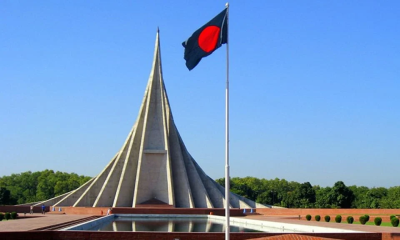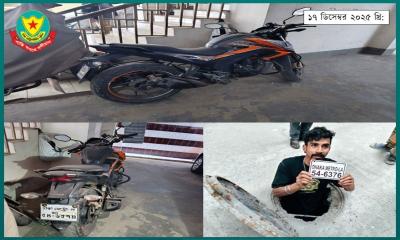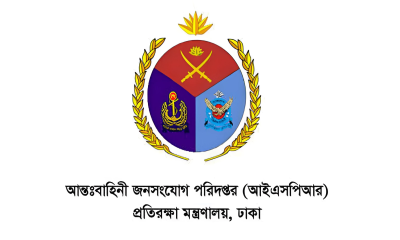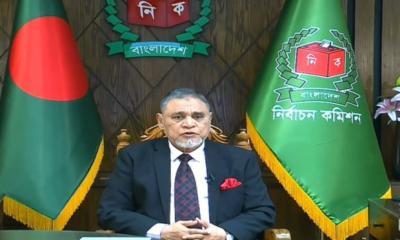Prime Minister Sheikh Hasina on Monday called for taking effective initiatives to ensure that international commitments are appropriately met for the implementation of the UN-adopted Sustainable Development Goals (SDGs).
“…effective initiatives need to be taken to ensure that international commitments are appropriately met and implemented,” she told the opening session of the 2nd National Conference on SDGs Implementation Reviews (SIR) at Bangabandhu International Conference Center (BICC).
She also put emphasis on ensuring the best use of funds and preventing its wastage as well as continuation of providing the policy support and funding for the implementation of the SDGs.
“We will continue to provide policy support and funding for the implementation of the SDGs, but we must ensure the best use of funds, and wastage must be prevented,” the prime minister said, joining the function virtually from her official residence Ganobhaban.
She also said her government will be able to achieve the set goals before 2030 provided all work together.
“We have achieved the status of a developing nation and we will be able to attain the status of a developed country by 2041,” Hasina observed.
She vowed that her government will continue to work to turn Bangladesh into a developed and prosperous nation free of hunger and poverty as dreamt by Father of the Nation Bangabandhu Sheikh Mujibur Rahman.
The premier mentioned that Bangladesh’s success in implementing the Millennium Development Goals (MDGs) brightened its image in the international arena.
“Our government is committed to implementing the ‘Agenda 2030’ or the Sustainable Development Goals (SDGs) to continue this pace of development,” she said.
She said that although SDGs is a global development concept, it is also very relevant in the development discourse of Bangladesh.
In this connection she said that Bangladesh was actively involved in formulating the SDGs from the very beginning.
In 2013, she said, taking the views of all relevant stakeholders of the country, Bangladesh proposed 11 Goals to the United Nations. Of these, ten were exactly adopted by the United Nations, and the remaining one was included among the other goals of Agenda 2030.
As a result, from the time of adoption of the SDGs, it has been possible to formulate various policies and strategies for Bangladesh in light of the SDGs, she added.
In 2015 the UN adopted the SDGs, also known as the Global Goals, calling upon its members to take action to end poverty, protect the planet, and ensure that by 2030 all people enjoy peace and prosperity.
It has incorporated 17 integrated goals which say that development must balance social, economic and environmental sustainability.
Planning Minister MA Mannan, State Minister for Planning Ministry Dr. Shamsul Alam, UN Resident Coordinator and Country Director Tuomo Poutiainen and Principal Coordinator SDG Affairs Zuena Aziz also spoke.
Member (Secretary) of General Economics Division of Planning Commission Md. Kawser Ahmed gave a brief presentation on the SDGs implementation in the country.
A documentary on the SDGs was also screened in the programme.
The prime minister said that Bangladesh has already made significant progress in formulating plans and strategies to implement the global development agenda for the period 2016-2030.
In this connection she said that in the government, Lead/Co-lead and Associate Ministries/Divisions have already been identified for SDGs implementation.
“A study has been done on how much data is available and what new data is to be generated to monitor the SDGs implementation. The amount of money and resources required to implement the SDGs has also been identified. All the Ministries/Departments have prepared an Action Plan to implement the SDGs.”
She also said that the government has formulated all its medium- and long-term planning documents keeping the SDG targets into our consideration.
“The SDG targets have been fully taken into account in the latest adopted Eighth Five Year Plan document and started to implement those,” she said.
Hasina said that Bangladesh has not only adopted the SDGs as a global development concept. Still, it has also started formulating this global target to suit its own needs, which has come to be known as SDG Localization.
She mentioned that under this initiative, out of 17goals, 39 indicators have been identified as SDGs priority areas for Bangladesh. In addition, considering the reality of each district and sub-district, one additional indicator has been determined.
“It is hoped that this priority list will enable monitoring and implementation of the SDGs in all government Departments at the District, Upazila, and local levels and will accelerate the performance of the SDGs and simultaneously accelerate the country's ongoing development,” she said.
Talking about the setback of SDGs implementation due to the COVID-19 pandemic, she said that the country is crossing seven years on the path to achieving the SDGs. In the last two years, SDGs implementation has slowed down due to the COVID-19 pandemic.
“However, intending to achieve the goal, we are working to the best of our ability,” she said.
The PM said that the economy is returning to growth momentum with the government providing timely stimulus packages and appropriate policy support.
“It is challenging to ensure the implementation of the SDGs in the stipulated time. Still, I believe that it would be possible to reach the goal through accurate and innovative action plans and effective monitoring systems.”
Referring to the changed scenario due to the COVID-19 pandemic and Russia-Ukraine war that is leading the whole world in economic recession and hit on the economy, she again asked all to ensure optimum utilisation of arable land and maintain austerity in using water, electricity, food and every sphere of life.
“People have suffered for these, we have to save our people from that, for that every person of the country has to remain cautious,” she said.
Praising the private sector for playing their vital role in keeping the wheel of Bangladesh's economy in motion the premier said that the investment climate has already been made more conducive to them.
“Once the mega projects for infrastructure development are fully implemented, the private sector will get more dynamism,” she said.
Replying to the critics of various mega projects, she said that these people only see the expenditure without considering the profits of the people from this spending and its contribution to the economy.
“The development of the country will get momentum, lives of the people will be upgraded, probably they do not consider those, this is very much regretful,” she added.
She requested the critics to travel across country to see the development of the people in lieu of sitting in Dhaka city only.
“If you communicate with the rural areas you will know everything,” she said pointing to the naysayers.




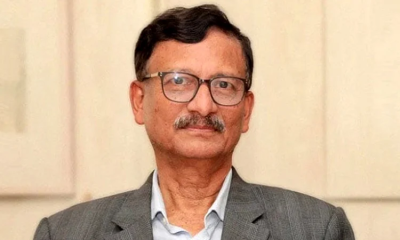

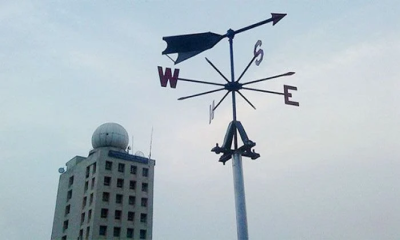
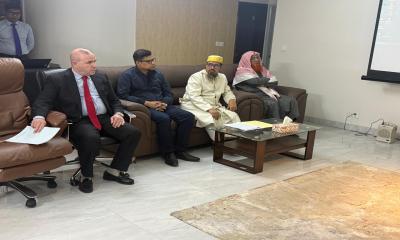
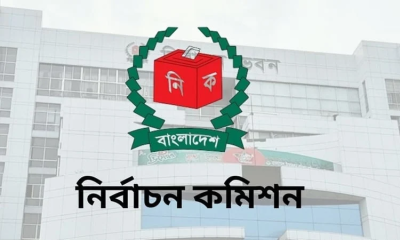
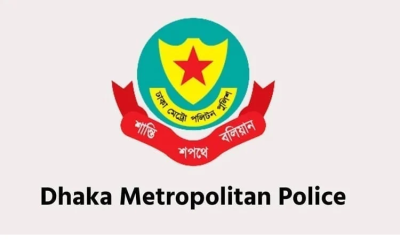
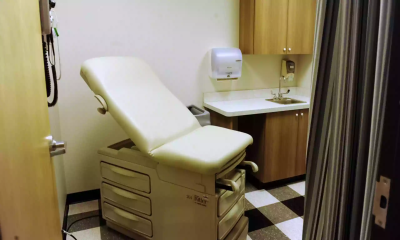

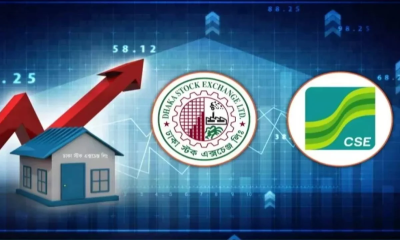

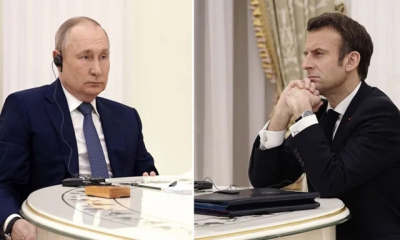
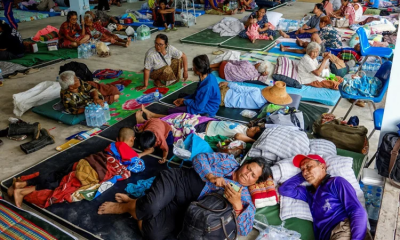

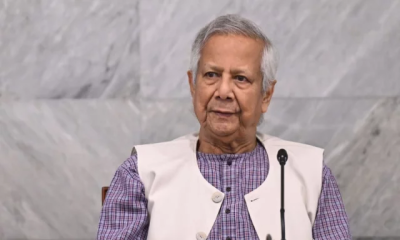
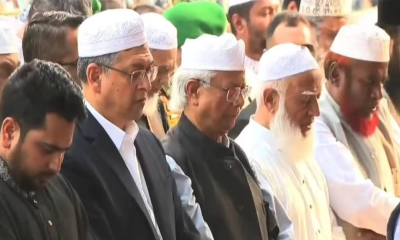
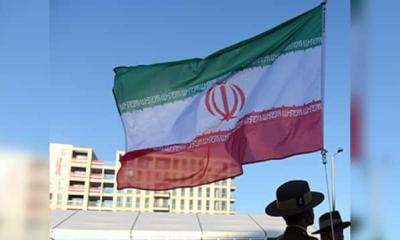
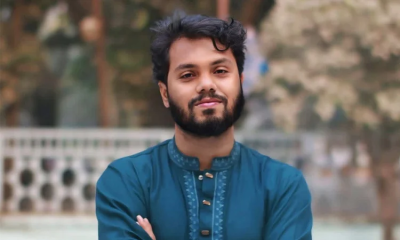

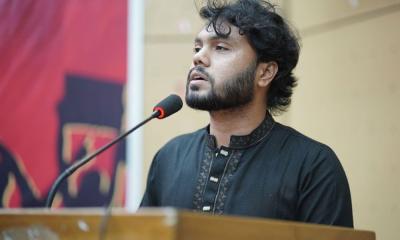
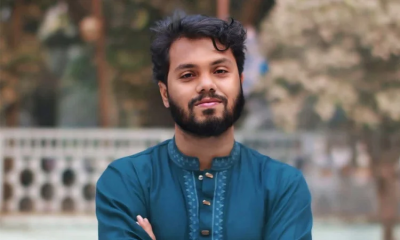
-20251218165258.jpeg)

-20251216090625.jpeg)
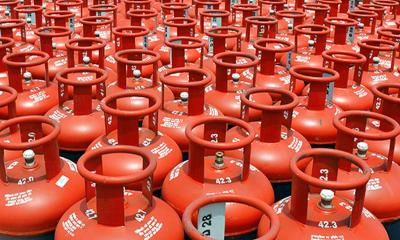

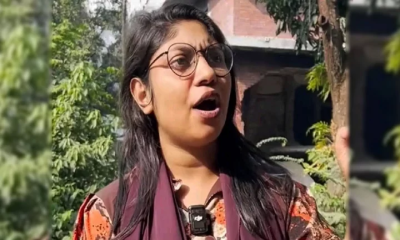
-20251216054240.jpeg)
